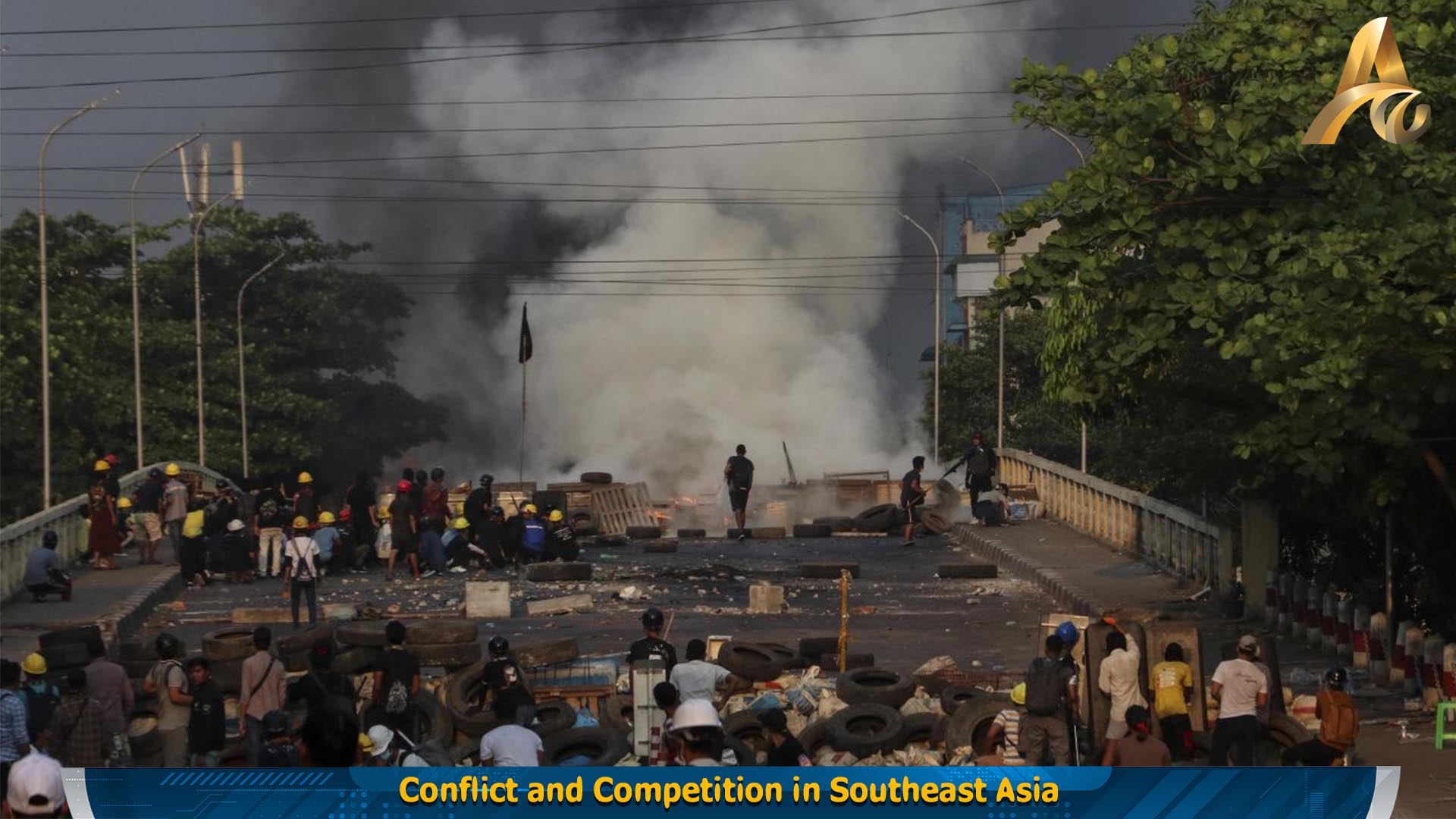PHNOM PENH: Nearly two years since the military coup crushed Myanmar’s fledgling democracy, rights groups and observers say freedoms and rights in the country have deteriorated sharply; state executions have returned and the number of documented violent attacks by the ruling military junta on civilian infrastructure, including schools, has surged.
Numerous armed rebel groups have emerged against the ruling military junta, while millions of people have resisted its rule through forms of civil disobedience.
The weekend’s summits in Phnom Penh will pull the conflict back into international focus, as Southeast Asian leaders try to find a path forward, after Myanmar’s ruling junta failed to implement a peace plan negotiated in April of last year. The country remains part of ASEAN, despite calls from rights groups for its ejection, but has been barred from sending political-level representatives to key events.
ASEAN foreign ministers held a last-ditch attempt to hash out a strategy late last month, with Cambodian Foreign Minister Prak Sokhonn, who chaired the meeting, stressing in a statement afterwards that the challenges were down to “the complexity and difficulty of Myanmar’s decades-long protracted conflicts, which has been further exacerbated by the current political crisis.”
But observers have low expectations for a tougher line, at least while Cambodia chairs the bloc, and are already looking to next year when Indonesia assumes leadership in 2023.
Addressing the “ongoing crisis” will be a focus for Biden in talks with Southeast Asian leaders as he attends ASEAN summits over the weekend, the White House said on Tuesday. Since the coup, the Biden administration has launched targeted sanctions against the military regime and held meetings with the opposition National Unity Government.
China, on the other hand, has shown support to the ruling military junta and would be unlikely to back tough action, observers say. A months-long inquiry into the situation in Myanmar released by an international team of lawmakers last month accused Russia and China of “supplying both weapons and legitimacy to an otherwise isolated regime.”
That, too, could have an impact on outcomes this weekend, according to political scientist Chong Ja Ian, an associate professor at the National University of Singapore.
“Because of Russian and (Chinese) support for the junta, any efforts toward a solution by ASEAN would require some form of engagement with them, whether this is to get buy-in or even just non-opposition,” Chong said.
The crisis in Myanmar is not the only area where US and China division may loom over the ASEAN summits, even as issues like China’s aggression in the South China Sea – where Beijing asserts territorial claims that conflict with those of several Southeast Asian countries – may be of lesser importance this year.
ASEAN will hold its usual side summits with both the US and China respectively, as well as other countries, and China’s number two leader, the economy-focused Premier Li Keqiang arrived earlier this week as Xi’s representative.
As Southeast Asian leaders seek to shore up their economic stability, they are likely to raise concerns about the impact of US-China competition on the region, its trade and supply chains, for example in the wake of a US export ban on semi-conductors to China, according to Chong.
“ASEAN states are going to try and find some way to navigate all this, and will be looking to both Beijing and Washington to see what sort of leeway they can provide,” he said.
(SOURCE: CNN)






















